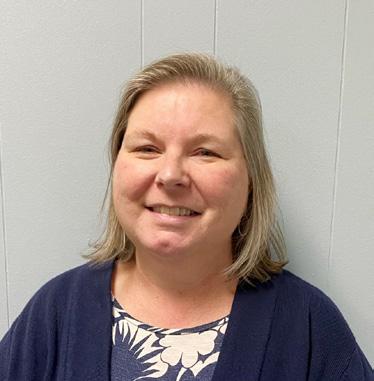
2 minute read
Music Enhances Hope Through Connections
By Niki Runge
Haveyou ever heard a song and immediately were reminded of a significant event, family and friends or connection with deeply held thoughts, ideas or beliefs?
It could be the song you danced to at your wedding, a lullaby that was sung to you by your mother or a hymn that you sung at church. You hear it and are once again connected to that memory and feeling all the emotions that go along with it. Music has a way of doing that and music therapists have a way of creating a space where that can happen intentionally.
Music Therapy Helps with Reminiscence
A universal process that hospice patients and their loved ones engage in is reminiscing and evaluating one’s life, or engaging in life review. Music can assist in this process. Many people have songs that are connected to special life moments. Music can remind them of these memories and give patients a chance to connect with loved ones over shared memories and even make new memories over listening and making music together. It helps to not only connect with others but also to the patient’s personal sense of identity. Special songs can also be used to create legacy projects that families can hold close to their hearts as a continued connection with their loved one after they have passed.
Music Therapy and Spirituality
The thought of dying and leaving loved ones can create fear and anxiety. Perhaps there are unresolved issues or a fear about what happens after death. Patients may wonder about their standing with God or a higher being. They may worry about what happens to their loved ones when they are gone. Listening to and singing songs connected to their faith or spirituality can assist in increasing a sense of peace and hope. Participating in spiritual rituals, such as faith-based music, can create a sense of familiarity, continuity and comfort when faced with the unknown.
Music Therapists create opportunities for a hospice patient to maintain connections with their sense of self, with loved ones, and with their faith and/or spirituality. Patients receiving hospice and palliative care music therapy report less pain, anxiety, nausea, and feelings of depression. They also experience increased feelings of well-being, comfort, relaxation, spirituality, escape, and reflection.
Music plays an integral role throughout the lifetime. When we are first born, lullabies soothe us; in grade school, it teaches us; in our adult life, it marks milestones and in the process of dying, it connects us to ourselves, our loved ones, and our spiritual life.
References
Music Intervention as a Tool in Improving Patient Experience in Palliative Care. Cynthia S. Peng, BS, Kelly Baxter, MS, APRN, ACHPN, and Kate M. Lally, MD. Warren Alpert Medical School of Brown University.

Niki
For more information, please contact Niki Runge, Hospice and Palliative Care Music Therapist at nrunge@coastalhospice.org or by phone: 410-742-8732 ext. 339









